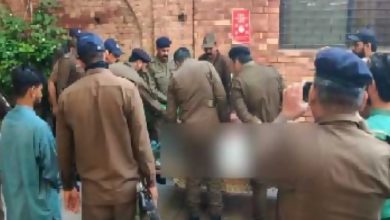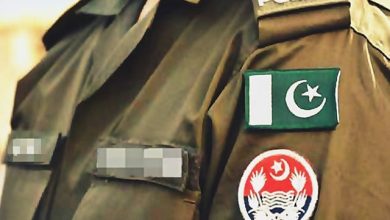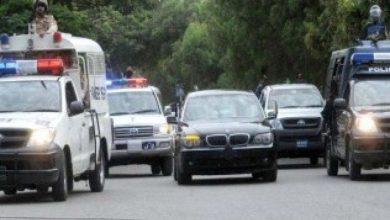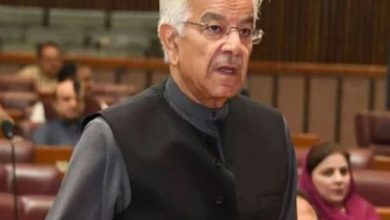Polio alert in Punjab as 11 cases detected
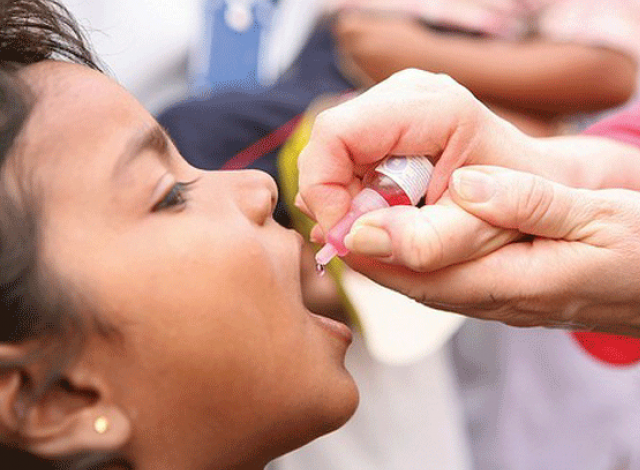
A World Health Organization (WHO) official said poliovirus has not been detected for some months in the country. PHOTO: REUTERS
LAHORE:
Punjab has reported 11 positive environmental samples for poliovirus, raising fresh alarms among health officials as the province continues to confront persistent virus circulation despite several months of aggressive immunization campaigns.
The newest surveillance figures released by the Pakistan Polio Eradication Initiative (PEI) indicate that Punjab collected a total of 31 sewage samples across various districts, of which 20 tested negative and 11 returned positive.
Officials say the detections reflect that the virus remains active in specific high-risk pockets, demanding sustained and targeted interventions to prevent further spread.
Although national environmental surveillance data suggests a general decline in the number of positive samples, Punjab’s continued detections highlight its vulnerability stemming from dense populations, large-scale urban mobility, and clusters of under-immunised children.
A senior official at the Punjab Emergency Operations Centre cautioned that the province “cannot afford even a moment of complacency,” warning that any lapse in campaign coverage or operational quality can undermine months of progress.
The official stressed that uninterrupted vaccination drives and strict monitoring must continue to stay ahead of the virus.
In October, Pakistan conducted its fourth nationwide polio vaccination campaign of 2025, during which more than 45 million children under five received oral polio drops.
Millions of these were in Punjab, where health teams were also instructed to provide Vitamin A supplements to help strengthen children’s immunity. Authorities focused particularly on areas that have repeatedly shown positive environmental samples, especially regions within Lahore and other urban centres.
Supervisors were deployed to verify missed children, ensure door-to-door coverage, and address hesitancy in communities where myths and misinformation continue to hinder immunization efforts.
Responding to continued detections in Lahore, authorities launched a special fractional inactivated polio vaccine (FIPV) drive across selected union councils from November 3 to 12.
Lahore has long been considered a district of concern due to its large, densely populated neighbourhoods and recurring environmental positives.
To ensure maximum coverage, the provincial health department activated mobile vaccination teams, fixed centres at clinics and hospitals, and transit teams posted at busy intercity routes to catch children travelling with families. Officials expect that the FIPV campaign will provide an additional layer of protection to infants and toddlers, particularly in high-risk urban clusters.
A major dual immunization initiative has also been approved at the national level and will run from November 17 to 29.
During this period, a nationwide Measles-Rubella (MR) vaccination campaign will be conducted, and polio drops will simultaneously be administered in 89 districts, including significant parts of Punjab.
Provincial health authorities are preparing to utilise schools, Basic Health Units, mobile camps, and community centres to reach millions of children between six months and five years of age.
The dual campaign aims to boost immunity against multiple disease threats, especially as winter-related infections begin to rise.
Health experts continue to urge parents to remain vigilant and ensure their children receive every scheduled dose of routine immunisation, which is available free of cost at government facilities for children up to 15 months old.
Repeated doses of the oral polio vaccine are essential, they note, as each added dose strengthens immunity even for those who have been vaccinated before.
Frontline vaccination teams in Punjab continue to operate under challenging conditions, dealing with misinformation, congested urban environments, and seasonal illnesses that affect campaign performance.
The provincial government has reassured health workers that their safety and support remain a priority. Officials emphasise that the fight against polio requires cooperation from communities, religious leaders, teachers, and media organizations to counter misinformation and encourage families to welcome vaccination teams. With another nationwide polio campaign scheduled for mid-December, authorities hope to close remaining immunity gaps and maintain momentum toward eliminating the poliovirus.
